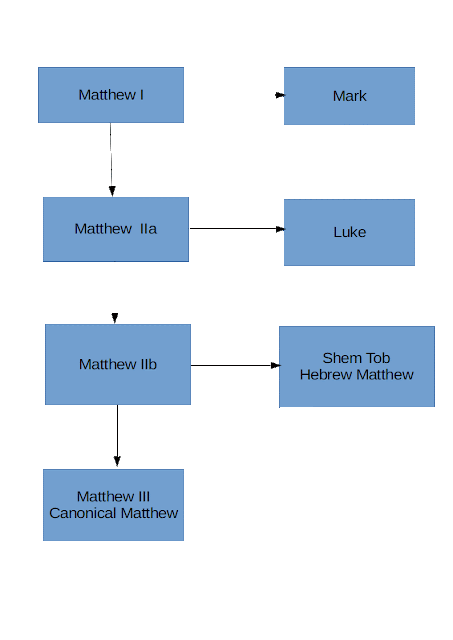The flower breathes light,
and is light.
We are that light,
that spirit, too.
We are beauty
and we are truth.
ᎠᏥᎸᏍᎩ ᎧᏬᎳᏕᏓᏎ ᎤᎸᏌᏓᏁ,
ᎠᎴ ᎨᏒᎠᏎ ᎤᎸᏌᏓ.
ᎢᏧᎳ ᎨᏒᎠᏎ ᎾᏍᏋ Ꮎ ᎤᎸᏌᏓ,
Ꮎ ᎠᏓᏅᏙ.
ᎢᏧᎳ ᎨᏒᎠᏎ ᎤᏬᏚ
ᎠᎴ ᎢᏧᎳ ᎨᏒᎠᏎ ᏚᏳᎪᏛ.
Text and image © 2019 by Donald C. Traxler ꮨᏺꭽꮅ.
Monday, July 8, 2019
Sunday, July 7, 2019
Udugi--Days of the Week
For those who are learning the Udugi (ꭴꮪꭹ) language:
English Cherokee Udugi Transliterated Udugi
Sunday (una)dodaquasgv(i) quasgvi ᏆᏍᎬᎢ
Monday (una)dodaquonvhi quonvhi ᏉᏅᎯ
Tuesday taline-iga taline-iga ᏔᎵᏁ-ᎢᎦ
Wednesday tsoine-iga tsoine-iga ᏦᎢᏁ-ᎢᎦ
Thursday nvgine-iga nvgine-iga ᏅᎩᏁ-ᎢᎦ
Friday tsunagilosdi gilosdi ᎩᎶᏍᏗ
Saturday (una)dodaquidena quidena ᏈᏕᎾ
Some things need to be taught more systematically than can be done in the little snippets that we publish.
Please note that the Romanization that appears here is based on the Eastern Cherokee dialect. Speakers of Western Cherokee will adjust to the sounds that they are used to (e.g. "jo" instead of "tso," etc. In either case, the spelling in Cherokee Script (the Sequoyah Syllabary) remains the same.
Hopefully, an Udugi dictionary will be coming out soon. It will be in electronic format, so searches can be either Udugi-English or English-Udugi. Please let me know if you wish to receive it when it is ready. The dictionary will be an electronic file, and it will be free. I can be reached either by email (exolinguist at gmail dot com) or by writing a comment (comentario) directly in this blog entry.
As always, thank you for your continued interest in this project.
Text and image © 2019 by Donald C. Traxler ꮨᏺꭽꮅ.
English Cherokee Udugi Transliterated Udugi
Sunday (una)dodaquasgv(i) quasgvi ᏆᏍᎬᎢ
Monday (una)dodaquonvhi quonvhi ᏉᏅᎯ
Tuesday taline-iga taline-iga ᏔᎵᏁ-ᎢᎦ
Wednesday tsoine-iga tsoine-iga ᏦᎢᏁ-ᎢᎦ
Thursday nvgine-iga nvgine-iga ᏅᎩᏁ-ᎢᎦ
Friday tsunagilosdi gilosdi ᎩᎶᏍᏗ
Saturday (una)dodaquidena quidena ᏈᏕᎾ
Some things need to be taught more systematically than can be done in the little snippets that we publish.
Please note that the Romanization that appears here is based on the Eastern Cherokee dialect. Speakers of Western Cherokee will adjust to the sounds that they are used to (e.g. "jo" instead of "tso," etc. In either case, the spelling in Cherokee Script (the Sequoyah Syllabary) remains the same.
Hopefully, an Udugi dictionary will be coming out soon. It will be in electronic format, so searches can be either Udugi-English or English-Udugi. Please let me know if you wish to receive it when it is ready. The dictionary will be an electronic file, and it will be free. I can be reached either by email (exolinguist at gmail dot com) or by writing a comment (comentario) directly in this blog entry.
As always, thank you for your continued interest in this project.
Text and image © 2019 by Donald C. Traxler ꮨᏺꭽꮅ.
To Reveal the Self
To reveal the self,
body and spirit,
is a gift given hesitantly,
in full vulnerability.
Secrets there will be,
both yours and mine,
but to reveal
is the price
of love.
Text and image © 2019 by Donald C. Traxler.
body and spirit,
is a gift given hesitantly,
in full vulnerability.
Secrets there will be,
both yours and mine,
but to reveal
is the price
of love.
Text and image © 2019 by Donald C. Traxler.
Saturday, July 6, 2019
The Whole Person / ᎧᎵᏬᎯ ᏏᏴᏫ
We do not see the whole person.
Only the spirit can do that.
ᎢᏧᎳ Ꮭ ᎪᏩᏔᏎ ᎧᎵᏬᎯ ᏏᏴᏫᏁ.
ᎤᏩᏌ ᎠᏓᏅᏙ ᏰᎵᏆᏎ ᎿᏛᎩ ᎾᏍᎩᏁ.
Text and image © 2019 by Donald C. Traxler ꮨᏺꭽꮅ.
Only the spirit can do that.
ᎢᏧᎳ Ꮭ ᎪᏩᏔᏎ ᎧᎵᏬᎯ ᏏᏴᏫᏁ.
ᎤᏩᏌ ᎠᏓᏅᏙ ᏰᎵᏆᏎ ᎿᏛᎩ ᎾᏍᎩᏁ.
Text and image © 2019 by Donald C. Traxler ꮨᏺꭽꮅ.
Body and Spirit / ᎠᏰᎸ ᎠᎴ ᎠᏓᏅᏙ
Body and spirit
are the two hemispheres
of our life.
We show one
and hide the other,
or we hide both.
Why?
ᎠᏰᎸ ᎠᎴ ᎠᏓᏅᏙ
ᎨᏒᎠᏎ ᏔᎵ ᎠᏰᎵ-ᎢᏴᏗ
ᎠᏆᏤᎵ ᎥᎴᏂᏙᎲ ᎥᎿᎢ.
ᎢᏧᎳ ᎤᎾᏛᏁᎸᏓᏎ ᏌᏊᏁ
ᎠᎴ ᎠᏗᏍᎦᎶᏓᏎ ᏐᎢᏁ,
ᎠᎴ ᎢᏧᎳ ᎠᏗᏍᎦᎶᏓᏎᎢᎬᎳᏁ.
ᎦᏙᏃ?
Text and image © 2019 by Donald C. Traxler ꮨᏺꭽꮅ.
are the two hemispheres
of our life.
We show one
and hide the other,
or we hide both.
Why?
ᎠᏰᎸ ᎠᎴ ᎠᏓᏅᏙ
ᎨᏒᎠᏎ ᏔᎵ ᎠᏰᎵ-ᎢᏴᏗ
ᎠᏆᏤᎵ ᎥᎴᏂᏙᎲ ᎥᎿᎢ.
ᎢᏧᎳ ᎤᎾᏛᏁᎸᏓᏎ ᏌᏊᏁ
ᎠᎴ ᎠᏗᏍᎦᎶᏓᏎ ᏐᎢᏁ,
ᎠᎴ ᎢᏧᎳ ᎠᏗᏍᎦᎶᏓᏎᎢᎬᎳᏁ.
ᎦᏙᏃ?
Text and image © 2019 by Donald C. Traxler ꮨᏺꭽꮅ.
Friday, July 5, 2019
Synoptica VII - Omissions and Interpolations, and What They Can Tell Us
All of "Luke's Great Omission" (corresponding to Mark 6:45-8:26) is essentially present in Hebrew Matthew (my Matthew IIb) Some of this material stretches credulity, but Luke included a lot of other stories that do the same. Some of it could be offensive to Gentiles, his main readership, but a slight rewording would have been sufficient. It really doesn't make sense that Luke would have omitted this material unless HE NEVER SAW IT. I believe that this material, called Luke's "Great Omission" by Markan Prioritists," is actually an early interpolation, but one later than the "Matthew IIa" that Luke made use of.
The Walking on Water incident is part of this early interpolation, and is included in Hebrew Matthew, and most of it is in Mark. But the part where Peter walks on water too (Mt.14:28-31) is not in Mark. Perhaps it is a later interpolation.
The words about the "leaven of the Pharisees and Sadducees" (canonical Mt. 16:6-8a) are missing in Hebrew Matthew (my Matthew IIb). Although these words have parallels in both Luke and Mark, this omission is a "Western" (early text) omission in the Greek tradition. It may, therefore, be a very late interpolation into the canonical Synoptic Gospels Its purpose is not obvious, but it may simply be anti-Semitic or anti-Judaistic. At any rate, it does sound like an interpolation, and is not at all necessary to the flow of the narrative.
The presence or absence of even a single word can be extremely interesting. For example, canonical Mt. 14:34 includes the place-name "Genessareth," which also appears in Mk. 6:53, but it is absent from the Hebrew Matthew of Shem-Tob, which I assign to the Matthew IIb layer of the Gospel of Mathew. At first I thought that this variant was insignificant, but it now seems to me to be very significant. It cannot have been left out of the Shem-Tob Matthew for any polemical reason, so I suspect that the inclusion of the place-name is a late interpolation, done to increase the air of credibility of the material. Apparently, all texts of the Greek tradition have it, although some give the name as "Genessar." More interesting, though, is that it appears in Mark 6:53. This could be due to a harmonistic insertion, or it could mean that Mark is the latest of the Synoptic Gospels. I'm inclined toward the latter explanation, but we shall have to look for corroborating evidence.
Text and image © 2019 by Donald C. Traxler.
The Walking on Water incident is part of this early interpolation, and is included in Hebrew Matthew, and most of it is in Mark. But the part where Peter walks on water too (Mt.14:28-31) is not in Mark. Perhaps it is a later interpolation.
The words about the "leaven of the Pharisees and Sadducees" (canonical Mt. 16:6-8a) are missing in Hebrew Matthew (my Matthew IIb). Although these words have parallels in both Luke and Mark, this omission is a "Western" (early text) omission in the Greek tradition. It may, therefore, be a very late interpolation into the canonical Synoptic Gospels Its purpose is not obvious, but it may simply be anti-Semitic or anti-Judaistic. At any rate, it does sound like an interpolation, and is not at all necessary to the flow of the narrative.
The presence or absence of even a single word can be extremely interesting. For example, canonical Mt. 14:34 includes the place-name "Genessareth," which also appears in Mk. 6:53, but it is absent from the Hebrew Matthew of Shem-Tob, which I assign to the Matthew IIb layer of the Gospel of Mathew. At first I thought that this variant was insignificant, but it now seems to me to be very significant. It cannot have been left out of the Shem-Tob Matthew for any polemical reason, so I suspect that the inclusion of the place-name is a late interpolation, done to increase the air of credibility of the material. Apparently, all texts of the Greek tradition have it, although some give the name as "Genessar." More interesting, though, is that it appears in Mark 6:53. This could be due to a harmonistic insertion, or it could mean that Mark is the latest of the Synoptic Gospels. I'm inclined toward the latter explanation, but we shall have to look for corroborating evidence.
Text and image © 2019 by Donald C. Traxler.
Shabbat Shalom / שׁבּת שׁלוֹם
The word שׁלוֹם (shalom), which we translate as "peace," is related to a whole complex of words having to do with wholeness, completeness. This is because without peace to allow us to live, learn, grow, and thrive, our lives cannot be complete, cannot be whole.
War shatters lives and makes a mockery of the wholeness of life. It damages the planet and is an insult to humanity and to nature.
We must provide our children with a world in which they can thrive, a world characterized by peace. This cannot be achieved through war, but only through the pursuit of peace. We cannot wait for others to do it. It must start with us.
Shalom Salaam Pax Paix Paz Dohidv ꮩꭿꮫ
Text and image © 2019 by Donald C. Traxler.
War shatters lives and makes a mockery of the wholeness of life. It damages the planet and is an insult to humanity and to nature.
We must provide our children with a world in which they can thrive, a world characterized by peace. This cannot be achieved through war, but only through the pursuit of peace. We cannot wait for others to do it. It must start with us.
Shalom Salaam Pax Paix Paz Dohidv ꮩꭿꮫ
Text and image © 2019 by Donald C. Traxler.






